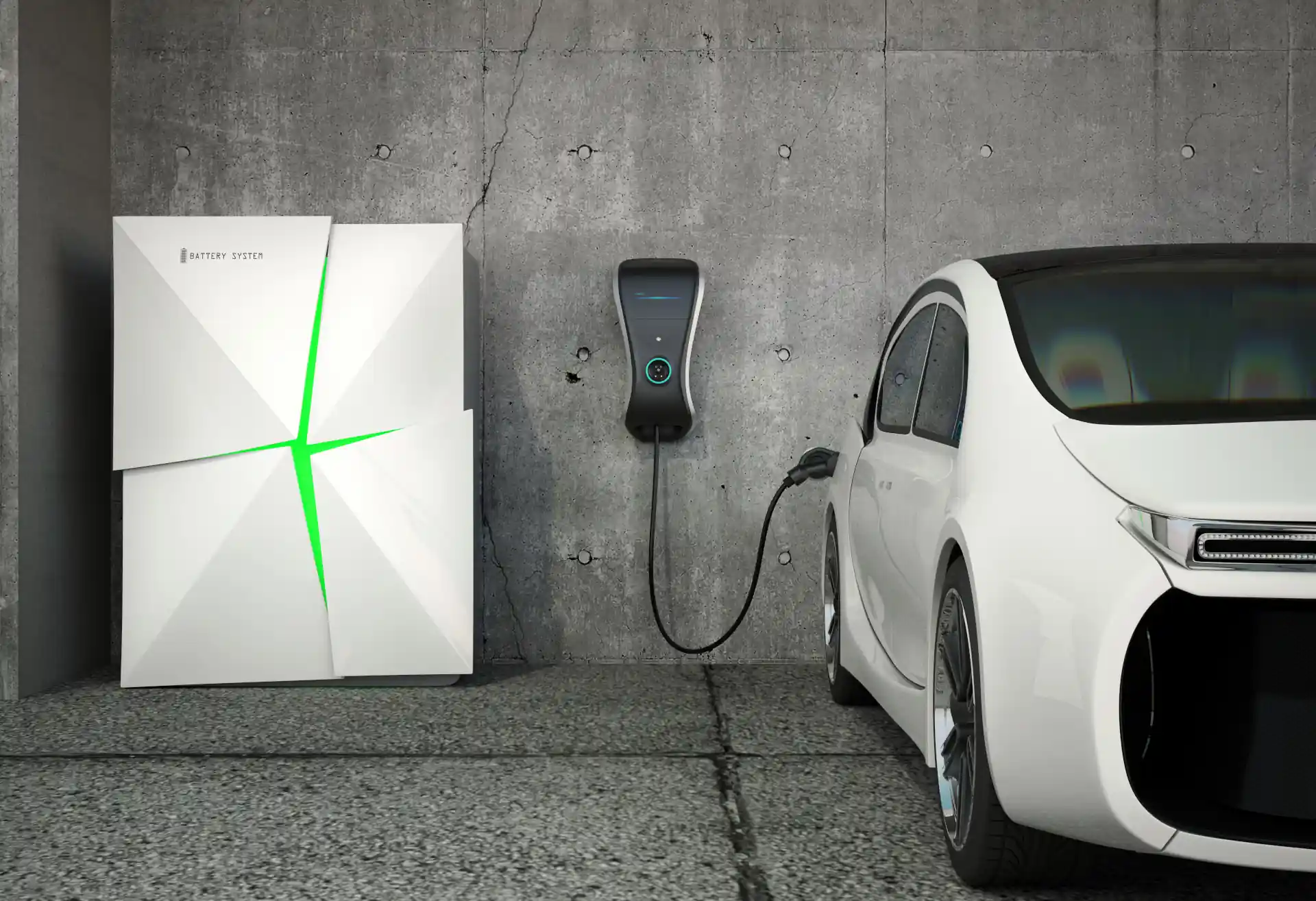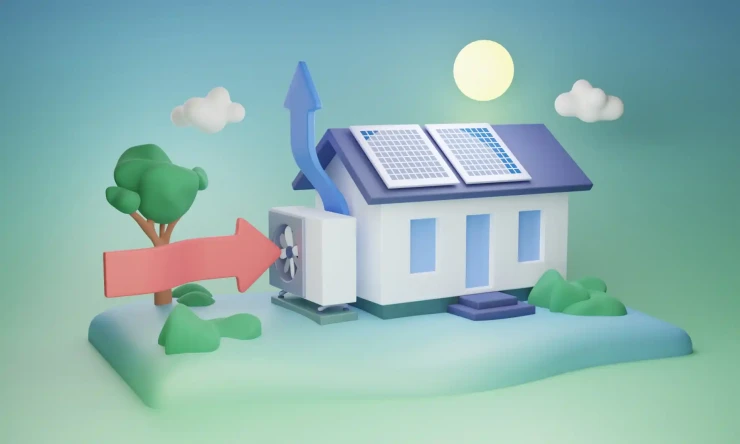
According to some surveys, transport accounts for around 30% of global carbon emissions. This means that even if we were to reduce industrial carbon footprint to zero miraculously, transportation would still be a huge problem.
This pollution is quite serious since it leads to air quality degradation, increased greenhouse gas emissions, climate change impact, and even health risks.
COMPARE PRICES FROM LOCAL INSTALLERS
Compare prices from local companies fast & free
Enter your postcode to compare quotes from leading professionals. We promise to keep your information Safe & Secure. Privacy Policy
Now, when it comes to the ownership of private vehicles, this is a problem whose solution comes down to one’s private choice. As a business owner or a fleet manager, you can make a difference by pushing an initiative to switch to EVs. You can make a difference in environmental sustainability with superior battery intelligence. Here’s what you should know on this subject.
1. Why are fleets so polluting?
There are many reasons why fleets are more polluting than private vehicles. Namely, private vehicles have an optimal number of uses per day. Ideally, you’ll use the vehicle to return to work. You may use them for a grocery run and one or two leisure runs, but that’s it.
Fleets, on the other hand, are constantly running. An optimized fleet consists of vehicles that are always on route. A vehicle that spends time in a garage or a parking spot is underutilized to the best of its capacities.
Second, it’s important to remember that fleets usually consist of larger vehicles. We’re not talking about compact urban cars but vans, trucks, and pickups. It gets even worse. You see, a well-utilized fleet vehicle is always fully loaded. It just doesn’t pay off to send a vehicle with a single box in the trunk. In other words, at any given point, the gas consumption of a fleet vehicle should be higher on average (even proportionally) than its counterpart.
There’s one more factor worth addressing, which is the fact that drivers are more careful with their vehicles than they are with company vehicles. This is why they tend to drive these vehicles more recklessly.
For all these reasons, the difference would be significant if fleets were to transition to electric vehicles.
2. Transition to electric fleets
Transitioning to electric fleets may lead to far higher sustainability, but this is just one of the reasons why this transition is so important. Here are some additional motivations businesses may have to transition to electric fleets.
- Regulatory compliances: The days of traditional internal combustion vehicles are numbered, and the world will slowly move toward electric vehicles. Now, while no one knows when this will happen, two things are clear - there’s a finite amount of fossil fuel, and the pollution is worsening. Some estimates suggest we’re already at the end of the fossil fuel age. This means that the next regulation that passes may hit your internal combustion fleet hard. Switching to electric may prevent this.
- Incentives and subsidies: Regulations are not the only way government organizations persuade people to go electric. Some subsidies and incentives may persuade some who are still on the fence.
- Fuel price stability: Electric vehicle costs are somewhat lower, but this is just one of the reasons why it pays off to take this route. Electrical power costs don’t fluctuate as much as gas prices.
- Protection against fuel theft: Fuel theft is a huge problem for every enterprise, but what if you were to control a charging station? Stealing electricity is much harder, and your assessments will be far more accurate.
Lastly, don’t forget that some of your customers may feel strongly about the environment. This means that, by switching to electric vehicles, you may score some points with them.
3. How does battery intelligence increase efficiency
Fleet owners and managers are all about efficiency. This means that if you could convince them that EVs are a cheaper and more efficient way to run their fleets, they won’t hesitate to transition. Sure, they may put it on paper first and do some calculations, but the transition will be inevitable if the numbers hold up.
With the help of a battery intelligence system, it might be a lot easier to offer these compelling arguments.
First, with the deeper SOC (state of charge) range estimate, you can alleviate pressure stemming from the phenomenon known as range anxiety. This is a worry that you’ll get out of power suddenly. This is more problematic for EVs because charging stations are not packed as tightly, you can’t bring cans of gas, and, on average, EVs have a shorter maximum range.
Then, battery intelligence may improve your charging and discharging profiles, leading to greater control and efficiency when supplying these vehicles and outfitting them for the road.
The best part is that you can easily integrate these platforms with your fleet management platforms. This means you get a unique insight into all the vehicle-relevant data in a single platform. This alone makes this whole idea a lot more tempting.
4. Impact of predictive maintenance on lowering fleet carbon footprint
Generally speaking, fleet truck maintenance is a huge factor in eco-friendliness. Vehicles that are in top shape are usually greener. They run more efficiently, waste less fuel, etc. However, when it comes to electric vehicles, the difference can be just as big.
First, a vehicle that’s not in its best shape spends more energy. While there are no emissions from the vehicle, this power must be produced somewhere. More often than not, this power comes from a thermal plant that uses fossil fuels. This means that, with less power used, the lower carbon footprint.
With better predictive maintenance, you’ll be able to set your maintenance intervals so that your vehicles are inspected regularly and that you have enough time to act as soon as you notice something suspicious.
Then, if one of your vehicles is inoperable, you’ll have to resort to a replacement vehicle. More often than not, this will be a fossil fuel vehicle. You'll minimize these risks by improving your maintenance efforts and reducing potential downtime.
One of the best aspects of using battery intelligence is the fact that you get to prolong battery life. This means you can postpone a replacement and minimize the waste caused by prematurely discarding burned-out parts.
5. Real-time monitoring and analytics
Sustainability is heavily related to energy efficiency. Overcharging, for instance, is a direct waste of energy, and its negative impact on your battery's SoH (state of health) may cause its premature demise. These are just two ways to track your SoC and efficiently undercharge your vehicles, which may make a difference.
The best thing about this is that, with the help of accurate real-time analytics and machine learning, your algorithm can “teach” your car how to respond to the battery needs. What does this mean? Well, on paper, it’s not that hard to calculate what percentage of a battery you’ll spend per hour or mile. However, road conditions change, the state of your car changes, and even tire inflation may affect your on-road efficacy.
A good battery intelligence system will analyze all of this and, with the help of AI-driven technologies and machine learning, be able to predict this in the future.
Also, keep in mind that the driver’s behavior is variable. Different people have different driving habits. Once your battery intelligence system understands your driving patterns, its estimates will become far more accurate. By driving, you’re giving the system the data it needs.
6. Optimization of routes and operations for higher sustainability
Right off the bat, an optimal route will reduce your vehicle’s energy consumption. However, while fleet management platforms may be able to estimate fuel consumption, when it comes to EVs, they might need the assistance of a battery intelligence system.
As more and more fleets become EV-based, this feature may become the default with all fleet management systems.
Now, with the help of battery intelligence, you’ll get a far more accurate estimate of how your vehicles behave on different routes. Congested traffic will make you spend more, but with the help of battery intelligence, you can tell exactly how much more.
Even more importantly, with a higher route optimization, you’ll get real-time adaptations. You see, the AI-powered fleet management tools can help make an estimate based on previous data, but they do far more. It’s not just it took you 17% more time last time, so we’ll just count 17% more today. It’s far more complex. With EVs and battery intelligence, the level of control and insight will be simply incredible.
With EVs and battery intelligence, fleets of the future will be more environmentally sustainable
As the energy crisis worsens and global pollution worsens, a switch to EVs will become inevitable. Sure, some people may “like” internal combustion vehicles more, but when running a business, there’s no room for feelings. Once EVs become even more superior, running any other kind of delivery chain will become economically unsustainable. Battery intelligence may be a major step in that direction.
By Srdjan Gombar
Veteran content writer, published author, and amateur boxer. Srdjan is a Bachelor of Arts in English Language & Literature and is passionate about technology, pop culture, and self-improvement. His free time he spends reading, watching movies, and playing Super Mario Bros. with his son.
Find a local installer
Welcome to the biggest directory of UK renewable energy companies




























